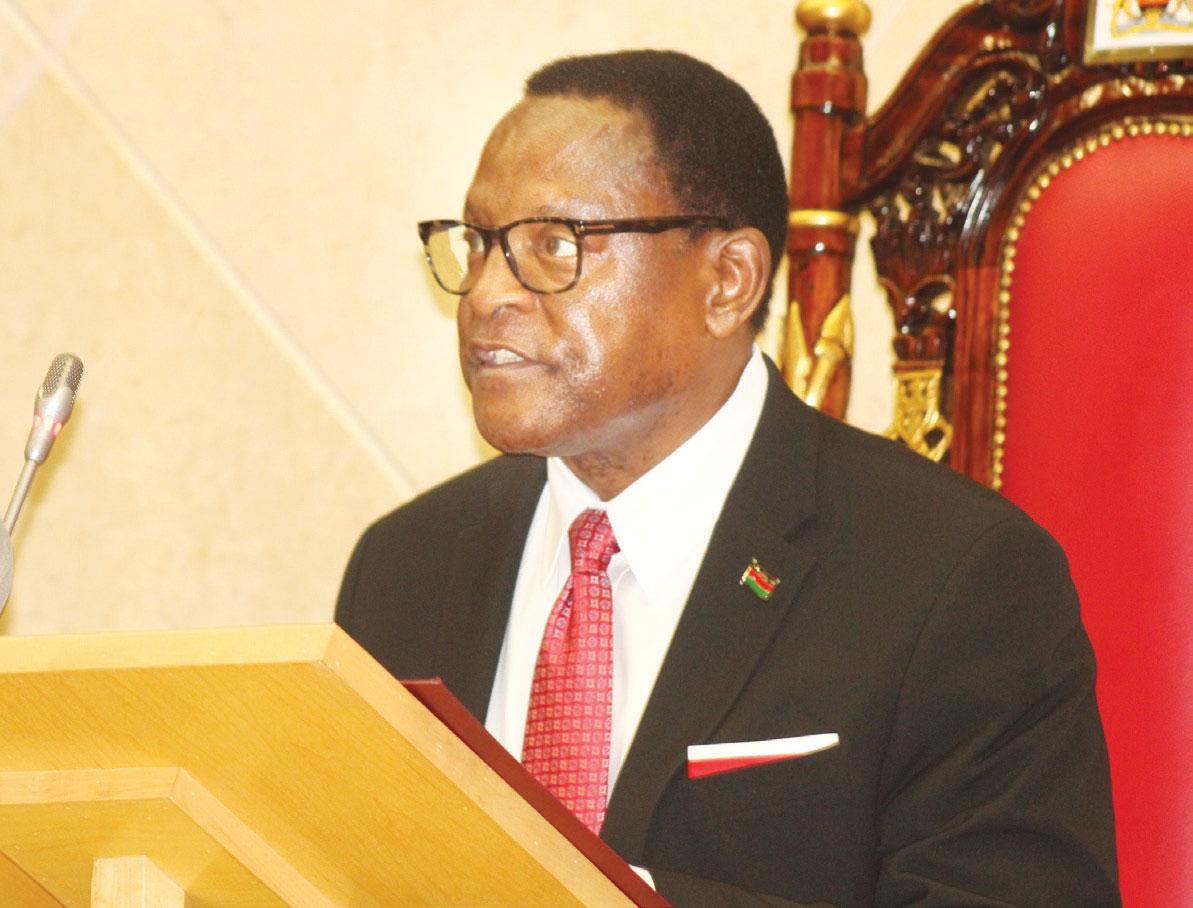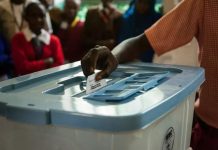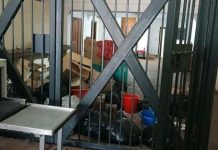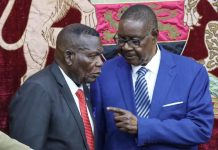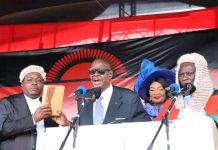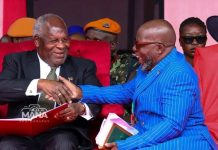Africa-Press – Malawi. A State of the Nation Address is usually a big policy statement by an administration and yesterday, as he presented the address in Parliament, President Lazarus Chakwera admitted the painful realities on the ground.
But he also indicated that his administration is going to fix some of the challenges. Presenting a statement titled ‘Delivering Economic Transformation and Governance Reform through Sacrificial Action and Service Excellence’, he described the economy as “bad news” that is evident to all Malawians.
He bemoaned the inflation rate, saying it is not encouraging and it is affecting living conditions of Malawians. He added that the negative trends in the local economy are connected to similar trends around the world.
“Madam Speaker, I mention all of this so that we do not engage in wishful thinking about what is happening to our economy,” Chakwera said.
He added: “The fact is, with our economy being heavily dependent on strategic foreign imports like fuel, fertiliser, pharmaceuticals, and other commodities from countries whose economies have been severely disrupted by war, or Covid-related lockdowns, or government imposed tight monetary policies, it is simply unrealistic to not expect any adverse effects on our own economy.”
He said Malawi’s economy has come under stress from pressure from debt, low electricity generation capacity, adverse weather conditions affecting agriculture growing season and tropical storms that destroyed lives and infrastructure. He also bemoaned the forex shortage challenge, lack of exports to boost forex reserves, heavy debts and low revenue generation.
“The revenue generation performance is not good enough to change the living conditions of Malawians,” he said admitting, “the living conditions and poverty of many Malawians are so harsh that millions are still unable to feed themselves.”
To improve the country’s economic status, Chakwera said his urgent task is to restructure the economy to produce enough, create wealth, jobs and achieve food security.
He further said his government will continue cushioning the poorest form against “the harshest blows of the global and economic thunderstorm” and laying a foundation for restructuring the economy for transformation in the long term.
Corruption
Chakwera admitted that during the last two months, the Director General of the Anti-Corruption Bureau has faced what he called legal and political impediments in her work.
He however said the new Director of Public Prosecutions has removed the impediments. But the President expressed worry that despite providing resources to the ACB, there is little progress on the prosecution of cases by the institution.
This, he said, needs a more serious and sober analysis. He appealed to the Judiciary to set dates for all consented to cases for Malawians to appreciate the fight against corruption.
Public service reforms
Chakwera said his agenda of improving public service delivery is impeded by multiple systemic, historical and cultural obstacles. The obstacles include dysfunctional public procurement processes, unchecked wastage of public resources on inconsequential activities, corruption and theft across all branches of government, redundant payment systems, political sabotage by political agents camouflaged as public servants among others.
He condemned the insatiable appetite for cash hand-outs from government officials, members of the public and community leaders and the endless inter-agency rivalries driven by toxic egos.
“We cannot fix all broken public services at once. We don’t have the resources to do that. That means that in each portfolio of public service, we must prioritize some services over others,” he said.
Affordable Input Programme (AIP)
The President admitted that the flagship Affordable Inputs Programme has faced numerous challenges. He promised restructuring. “Madam Speaker, the programme is undergoing reforms to enhance its impact which will be effected in the new fiscal year,” Chakwera said.
He said the new design is necessary because despite the impact the programme has made on food ensuring food security the Malawi Vulnerability Assessment Committee 2022 annual assessment estimated that over 3.8 million people in over 845,000 households may still not meet their food requirement during the 2022-2023 consumption period.
Among the achievements of his administration, Chakwera cited Consolidated Safety Nets Programme for the vulnerable communities and the progress the government is making to secure financial support from the International Monetary Fund (IMF)
“We have also made good progress in our negotiations for a new Extended Credit Facility with the IMF,” he said.
According to Chakwera, government has also successfully embarked on mega farms project aimed at establishing large production units for increased agricultural production.
“We have already established two Mega Farms in Chipoka, Salima and Nkopola, Mangochi with 200 hectares of maize currently under cultivation in Mangochi and 80 hectares of cotton under cultivation and production in Chipoka,” he said.
For More News And Analysis About Malawi Follow Africa-Press

